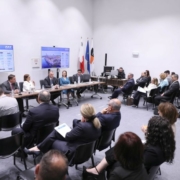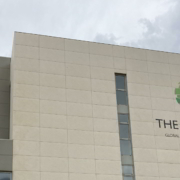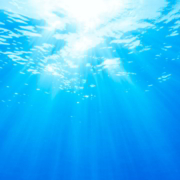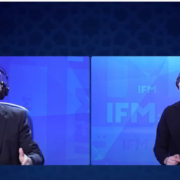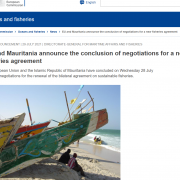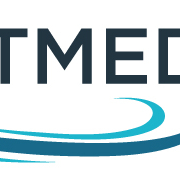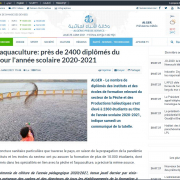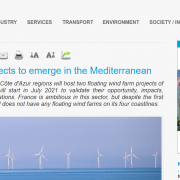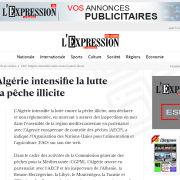El evento se celebra este jueves, 5 de mayo, en el edificio The Green Ray de la capital malagueña y contará con un destacadísimo panel de expertos nacionales e internacionales en ambos campos
Málaga, 4 de mayo de 2022.- La sede del Clúster Marítimo-Marino de Andalucía (CMMA), ubicado en el edificio The Green Ray (bulevar Louis Pasteur, número 47, Málaga), acogerá el evento nacional del Mecanismo de Asistencia de la Iniciativa WestMED en España ‘Diversificación en el Sector Pesquero y Acuícola: Oportunidades dentro de la Economía Azul en el Mediterráneo Occidental’. Será el próximo jueves, 5 de mayo, de 9.00 a 17.00 horas.
Estas jornadas están dirigidas a todos los actores mediterráneos de habla hispana de los sectores de la pesca y la acuicultura, pero también a representantes de la Administración y otros negocios de diversificación internacional. Además, la cita ha sido seleccionada por la Comisión Europea como un evento ‘EU in My Country’, dentro de los eventos en torno al Día Marítimo Europeo de 2022.
Así, a las 9.00 horas se abrirá el registro de participantes y, a las 9.15, será la inauguración. Participarán el director del Clúster Marítimo Español, Fernando Izquierdo Sans, el presidente del CMMA, Javier Noriega, y los coordinadores nacionales de la Iniciativa WestMED, Omar Collado (Ministerio de Asuntos Exteriores, Unión Europea y Cooperación), y José María Solano (Ministerio de Agricultura, Pesca y Alimentación), respectivamente, así como la subdirectora general de este último ministerio, Silvia Solís Reyes.
A las 10.00, tendrá lugar la mesa redonda ‘Diversificación en el Sector Pesquero y Acuícola: Oportunidades dentro de la Economía Azul’, en la que participan Janne Posti, FAME-NET-Vision EU-Thematic and Territorial Officer, Support Unit for Spain; Manuel Pleguezuelo Alonso, de la DG Mare, dará la visión de la gobernanza y la financiación para el Mediterráneo Occidental; formarán parte del panel, asimismo, el presidente de la Federación Nacional de Cofradías Pescadores (FNCP), Basilio Otero, y el funcionario del Ministerio de Agricultura, Pesca y Alimentación Raúl Rodrigálvarez Fresneda (dará la visión de la política y la financiación española). Aportará la visión autonómica Félix Orellana, vocal de Pesca y Acuicultura del CMMA.
Tras una pausa para el café, a las 12.15 se abordarán ‘Ejemplos de iniciativas exitosas, innovadoras o punteras en la diversificación pesquera y acuícola’, espacio en el que participarán la fundadora de Turismo Marinero, Shonia Cruz Ibarra, la visión de la arqueología submarina será analizada por el representante de Nerea Arqueología Subacuática, Daniel Florido. Luis Manuel Albiol analizará los servicios de limpieza y lucha contra la contaminación de emergencias y su relación con la pesca, acerca de un caso de la Comisión Interfederativa de las Cofradías de Pescadores de la Comunidad Valenciana (Coincopesca), la Fundación Ecoalf & Ecoembes-Iniciativa ‘Upcycling The Oceans’. Pero también Participarán Inma Torres, de Galpemur, para hablar de la conservación, las reservas marinas y la pesca; Sebastián Martín de Catamarán Zostera, para abordar la relación entre gastronomía y pesca; David Camacho, del Grupo de Acción Local del Sector de Pesquero (GALP) de Málaga, se referirá al mismo asunto y, para debatir en cuanto a la creación de valor y nuevos productos, se analizarán los casos de Relicta Bioplastics (Italia) y Bythos Project-Aquabiotech, de Malta.
A las 15.15 horas, tras la comida, se reanuda la sesión con un ‘Workshop participativo sobre la diversificación del Sector Pesquero y Acuícola’, cuyo fin es propiciar un intercambio de ideas, prácticas y experiencias entre los participantes con la base de tres preguntas: ¿cuáles son los valores principales de su zona que pueden ofrecer oportunidades de diversificación? ¿Han sido suficientemente exploradas las oportunidades de diversificación de su zona? ¿Qué se puede hacer para asegurar las oportunidades de diversificación de su zona?
Por último, tendrá lugar un panel de conclusiones finales y el cierre del evento nacional. Estos dos puntos correrán a cargo del presidente del CMMA y de los coordinadores nacionales de la Iniciativa WestMED, concluyendo a las cinco la jornada.
A través del evento de la Iniciativa WestMED, coorganizado por el CMMA, se abordará el importante asunto de la diversificación en los sectores de la pesca y la acuicultura, se explorarán los diversos desafíos para desarrollar esta diversificación a través de ejemplos excelentes de iniciativas y empresas del entorno de la cuenca del Mediterráneo y, finalmente, se discutirá con los participantes cómo podrían diversificar sus actividades, qué falta para lograr esa diversificación y cómo podrían alcanzarse esos objetivos.
Los desafíos socioeconómicos actuales que enfrenta el sector pesquero en Europa requieren de un esfuerzo para mejorar las condiciones de vida de los pescadores y sus familias, así como las de las comunidades pesqueras. La diversificación de la pesca y la acuicultura se sugiere entre las acciones para preservar una Economía Azul Sostenible en el Mediterráneo, con desafíos sociales, culturales y económicos, dice el Mecanismo de Asistencia de la Iniciativa WestMED en España, que añade: “Es fundamental desarrollar actividades económicas complementarias a la pesca y la acuicultura y crear nuevas oportunidades de negocio (y fuentes de ingresos complementarias para los operadores)”.
Ejemplos de la diversificación en la actividad económica de la pesca y la acuicultura incluyen turismo y excursiones en barco, exhibiciones de actividades pesqueras tradicionales, visitas a granjas de acuicultura u otras actividades recreativas.
La diversificación de la economía de las áreas de pesca, a través de estrategias elaboradas y representadas en los Grupos de Acción Local de Pesca (GALPS), puede ayudar a diversificar economías locales y crear nuevas oportunidades para las comunidades pesqueras.
Persona de contacto de WestMED España – Marta Pascual: spain@westmed-initiative.ec.europa.eu
Visite la página del evento WestMED
Sigue al Clúster Marítimo-Marino de Andalucía en Twitter, LinkedIn y Facebook
Bulevar Louis Pasteur, 47 – Local 4 – Buzón 11 – The Green Ray | 29010 – Málaga
Para más información: José Antonio Sau (responsable de Comunicación):
635192292-comunicacion@cmma.eu
info@cmma.eu | www.cmma.eu

